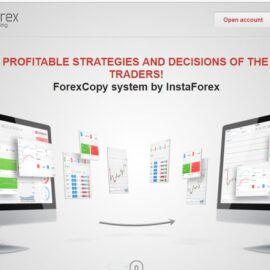
This topic explains if a person who buys and sells securities qualifies as a dealer in securities for tax functions and how merchants should report the earnings and expenses resulting from the trading enterprise. This matter also discusses the mark-to-market election under Internal Revenue Code part 475(f) for a dealer in securities. In common, under part 475(c)(2), the time period security features a share of stock, useful possession interests in sure partnerships and trusts, evidence of indebtedness, and sure notional principal contracts, in addition to proof of an curiosity in, or a spinoff financial instrument in, any of these items and sure recognized hedges of these things. To better understand the special rules that apply to merchants in securities, it’s helpful to evaluation the meaning of the phrases investor, dealer, and dealer, and the different manner by which they report the income and expenses regarding their actions.
Investors
Investors usually purchase and promote securities and anticipate income from dividends, interest, or capital appreciation. They buy and sell these securities and hold them for personal funding; they are not conducting a commerce or business. Most buyers are individuals and hold these securities for a considerable time period. Sales of those securities end in capital gains and losses that should be reported on Schedule D (Form 1040), Capital Gains and Losses and on Form 8949, Sales and Other Dispositions of Capital Assets as applicable. Investors are subject to the capital loss limitations described in part 1211(b), along with the section 1091 wash sales guidelines. Commissions and different costs of acquiring or disposing of securities aren’t deductible but should be used to determine achieve or loss upon disposition of the securities. Review Topic No. 703, Basis of Assets for extra info. Investment earnings isn’t topic to self-employment tax. For extra info on investors, check with Publication 550, Investment Income and Expenses.
Dealers
Dealers in securities may be individuals or enterprise entities. Dealers often purchase or sell securities to their clients within the ordinary course of their commerce or enterprise. Dealers can also maintain themselves out as willing to enter into, assume, offset, assign or in any other case terminate positions in securities with prospects within the odd course of the commerce or enterprise. Sometimes they maintain a list. Dealers are distinguished from buyers and merchants as a end result of they’ve clients and derive their revenue from advertising securities on the market to clients or from being compensated for services supplied as an intermediary or market-maker. Section 475 requires sellers to maintain and maintain information that clearly establish securities held for private achieve versus those held to be used of their business exercise. Dealers must report positive aspects and losses related to securities by utilizing the mark-to-market rules discussed beneath.
Special guidelines apply should you’re a dealer in securities, in the enterprise of buying and promoting securities for your personal account. The regulation considers this to be a enterprise, although a trader would not keep a listing and would not have prospects. To be engaged in enterprise as a dealer in securities, you must meet all of the following situations:
* You should search to revenue from daily market actions within the prices of securities and not from dividends, curiosity, or capital appreciation;
* Your activity must be substantial; and
* You should carry on the exercise with continuity and regularity.
The following details and circumstances ought to be thought-about in determining if your activity is a securities trading enterprise:
* Typical holding durations for securities bought and bought;
* The frequency and dollar amount of your trades in the course of the yr;
* The extent to which you pursue the exercise to provide income for a livelihood; and
* The period of time you devote to the exercise.
If the nature of your trading activities does not qualify as a enterprise, you are considered an investor and never a trader. It doesn’t matter whether you call your self a trader or a day dealer, you’re an investor. A taxpayer could also be a trader in some securities and may hold other securities for investment. The particular guidelines for traders don’t apply to those securities held for funding. A dealer should keep detailed data to tell apart the securities held for investment from the securities in the trading business. The securities held for funding must be identified as such within the trader’s information on the day he or she acquires them (for example, by holding them in a separate brokerage account).
Traders report their business bills on Schedule C (Form 1040), Profit or Loss From Business (Sole Proprietorship). Commissions and different prices of buying or disposing of securities aren’t deductible but must be used to determine acquire or loss upon disposition of the securities. See Topic No. 703, Basis of Assets. Gains and losses from promoting securities from being a dealer aren’t topic to self-employment tax.
The Mark-to-Market Election
Traders can select to use the mark-to-market guidelines, traders cannot. If a trader would not make a valid mark-to-market election under part 475(f), then he or she should deal with the features and losses from sales of securities as capital features and losses and report the gross sales onSchedule D (Form 1040), Capital Gains and Losses and on Form 8949, Sales and Other Dispositions of Capital Assets as applicable. When reporting on Schedule D, each the limitations on capital losses and the wash sales rules continue to apply. However, if a trader makes a well timed mark-to-market election, then he or she can deal with the gains and losses from sales of securities as strange features and losses (except for securities held for funding – see above) that must be reported on Part II of Form 4797, Sales of Business Property. Neither the restrictions on capital losses nor the wash sale guidelines apply to traders using the mark-to-market methodology of accounting.
A trader must make the mark-to-market election by the original due date (not together with extensions) of the tax return for the yr prior to the yr for which the election becomes effective. You could make the election by attaching a press release either to your income tax return if filed without an extension or to a request for an extension of time to file your return. The assertion ought to include the following information:
1. That you make an election under part 475(f);
2. The first tax 12 months for which the election is effective (that is, the tax yr for which a timely election is being made); and
three. The commerce or enterprise for which you’re making the election.
Refer to the Instructions for Schedule D (Form 1040), Capital Gains and LossesPDF for more information on the method to make the mark-to-market election. It’s essential to note that generally, late part 475(f) elections aren’t allowed.
After making the election to change to the mark-to-market methodology of accounting, you have to change your technique of accounting for securities under Revenue Procedure PDF, Section 24.01. In addition to creating the election, you will also be required to file a Form 3115, Application for Change in Accounting Method. Publication 550 describes the procedures for making an election under the section known as “Special Rules for Traders in Securities.” Non-filing of the Form 3115 talked about above won’t invalidate a well timed and valid election.
If you’ve got made a sound election under part 475(f), the one method to cease using mark-to-market accounting for securities is to file an automatic request for revocation beneath Revenue Procedure , Section 24.02. Under that revenue process, the request for revocation have to be filed by the unique due date of the return (without regard to extensions) for the taxable year previous the year of change (the year of change is the primary taxable yr the revocation is to be effective). This revocation notification assertion have to be connected to either that return or if applicable, to a request for extension of time to file that return. Late revocations won’t typically be allowed besides in uncommon and compelling circumstances.






